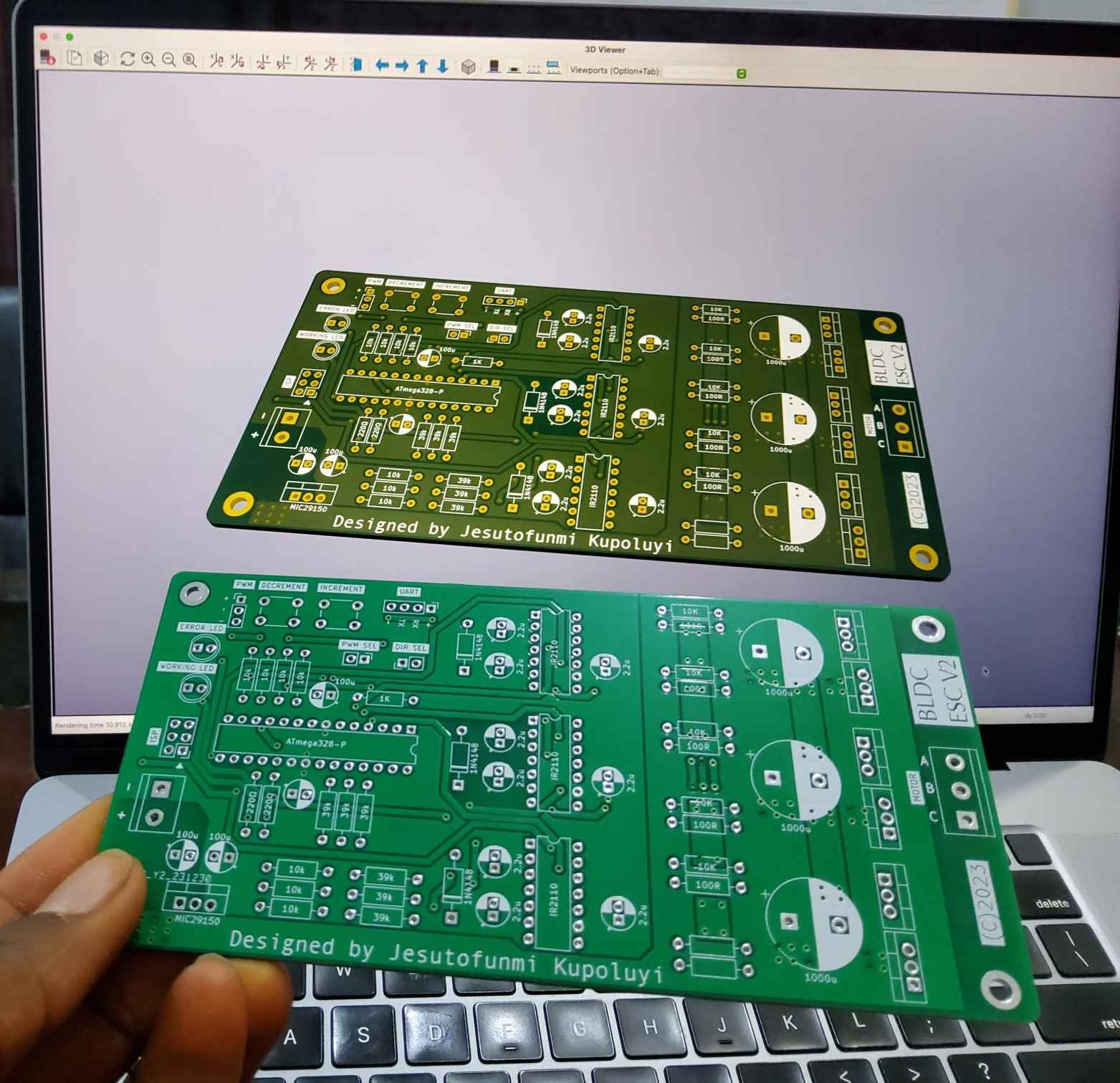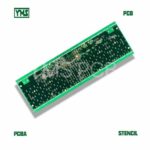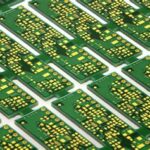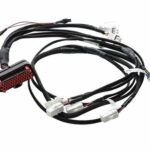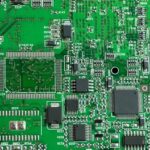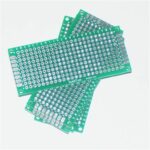Quick turn printed circuit boards (PCBs) refer to the rapid fabrication of prototype and low-to-medium volume PCB production builds within extremely aggressive lead times, typically ranging from 24 hours to 10 days.
Companies leverage quick turn services to swiftly obtain board iterations for:
- Testing form, fit and function
- Proving design concepts
- Verifying electronic performance
- Validating manufacturability
Rapid PCB prototyping facilitates bringing products to market faster. However, balancing expedited delivery against budget constraints when selecting your quick turn manufacturer is vital.
This guide examines quick turn PCB capabilities, the merits of fast prototyping, key manufacturer selection criteria, how to keep costs low, and the must-have services to enable accelerated board builds.
What are Quick Turn PCB Capabilities
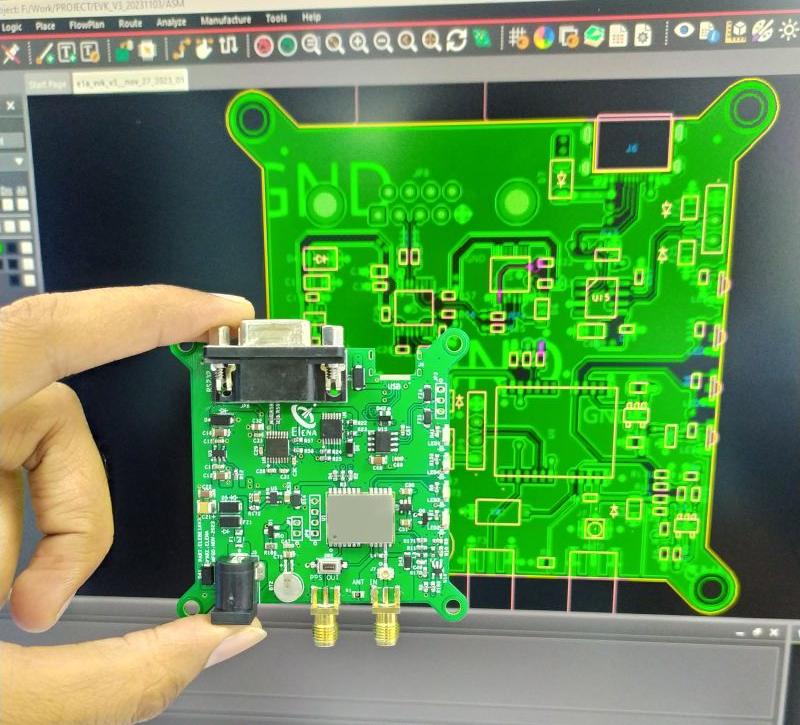
Quick turn PCB manufacturers offer expedited fabrication of custom designed bare printed circuit boards on extremely short notice.
Typical lead times for quick turn services are:
| Lead Time | Description |
|---|---|
| 24 Hours | Simple, 2-layer boards |
| 3-5 Days | Moderate complexity |
| 5-10 Days | High complexity boards |
Capabilities span simple single-sided boards to advanced multilayer boards supporting the latest high density interconnect (HDI) and substrate technologies.
However, managing costs with quick turn services can prove challenging. We cover techniques for keeping expenses lower later in this guide.
First, let’s examine why fast prototyping is so valuable.
The Value of Fast PCB Prototyping
For hardware developers, lengthy traditional PCB fabrication cycles slowing product development momentum. Rapid prototyping solves this.
Benefits of fast PCB prototyping include:
Accelerate Innovation Cycles
- Test form, fit, and function quicker through iterative builds
- Identify and fix design issues early
- Refine optimal product designs faster
Faster Product Launch
- Prove concepts quickly with physical prototypes
- Demo products sooner to impress investors
- Ship to market faster to beat competitors
**Improve Cost Management **
- Fail fast and pivot quicker to maximize ROI
- Avoid costly downstream change orders
- Lock-in final requirements before mass production
For any organization racing rivals to launch new electronics, prolonged design-fab-test-redesign roadblocks can undermine competitiveness.
Teaming with competent quick turn PCB manufacturers helps compress development timelines through rapid prototyping iteration for market-ready products faster. This makes exploring a product’s technical and economic feasibility less risky.
Next let’s explore selection criteria for choosing your ideal quick turn partner balancing quality, affordability and delivery.
Key Selection Criteria for a Quick Turn PCB Partner
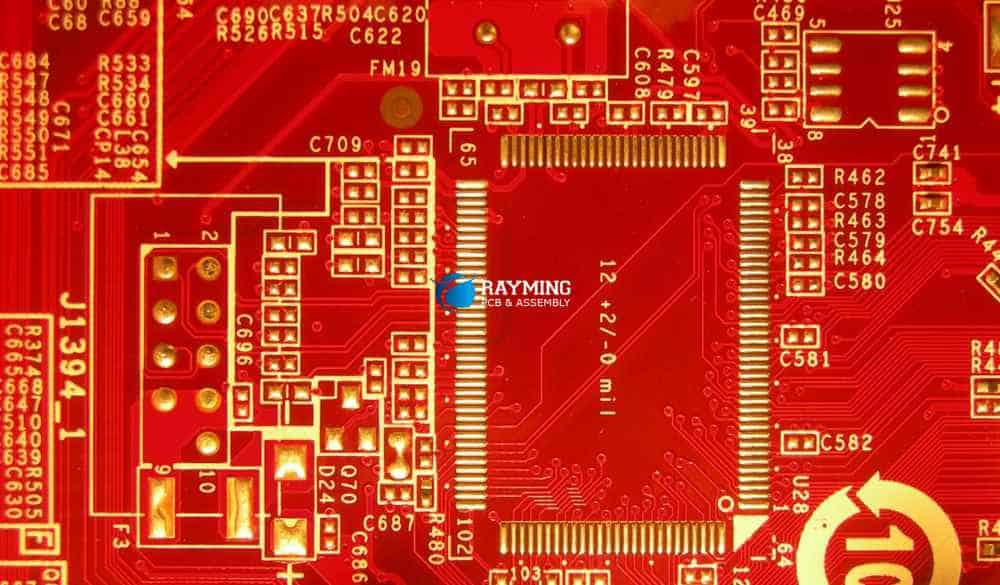
Finding the right quick turn manufacturer for your specific prototyping application involves evaluating critical factors spanning technical capabilities, quality, costs, and customer service.
Main selection criteria include:
Capabilities
- Supported materials and technologies
- Equipment and processes
- Supply chain infrastructure
Quality
- Adherence to IPC standards
- Testing and inspection regimes
- Industry certifications
Services
- Scope of engineering support
- Design rule checking
- Assembly and other value-adds
Costs
- Pricing models & cost drivers
- Standard NRE charges
- Quote accuracy & updates
Customer Support
- Engineering assistance & reviews
- Communication responsiveness
- Program management support
Below we explore what assessing these criteria entails to help select the best quick turn manufacturer for your next project’s needs and constraints.
Capabilities – Technology, Agility, Scale
An ideal quick turn partner possesses diverse PCB fabrication capabilities able to support your board requirements both today and as your program matures.
Seek providers equipped to handle:
Materials & Technology Expertise
Your partner should adeptly build boards leveraging:
- FR-4 and high frequency materials (PTFE, Rogers)
- Thick copper, heavy gold plating, finishes like ENIG, immersion silver
- Fine line traces/spaces supporting 0.005” design rules
- Blind and buried vias; microvias
- Flex and rigid-flex boards
- HDI technology meeting dense interconnect needs
Supply Chain Infrastructure
- Strong relationships with raw material suppliers
- Local sourcing to mitigate global supply chain risks
- Inventory availability for faster procurement
Scalability
As your prototypes graduate to pilot builds then volume production, your selected quick turn PCB partner should offer:
- Consistent quality across low-to-high volumes
- Space to allocate more manufacturing capacity
- Continuity of engineering support
Seeking broad technology breadth backed by a resilient supply chain and scalability enables on-demand boards as project needs evolve from early prototyping to eventual mass production.
Quality Processes & Certifications
Verify that potential quick turn PCB manufacturers adhere to rigorous quality standards ensuring reliably fabricated boards.
Key quality indicators include:
- Following IPC standards from design to manufacture
- Rigorous incoming raw material inspection
- Automated optical inspection (AOI) checking
- Electrical testing disciplines (flying probe, ICT fixture testing)
- Industry certifications like ISO 9001
Proper quality processes minimize yields risks as you probe product feasibility through iterative prototyping builds.
Services – Engineering Support, Value-Adds
Understand available value-added services augmenting core quick turn PCB fabrication offered.
Typical services a strong partner provides encompasses:
Engineering Support
- Offering design for manufacturing (DFM) guidance during design reviews
- Performing design rule checks (DRC) assessing manufacturability
- Providing impedance modeling, tolerance analysis and other simulation assistance
** fabrication testing**
Verify they conduct:
- Netlist testing
- Flying probe testing
- Automated optical inspection and x-ray verification
Post-Fab Value-Adds
- CAM/Gerber file editing
- Assembly
- Box build/product integration
- Logistics assistance
Choose providers giving engineering help upfront while offering downstream assembly and test services later enabling faster finished electronic goods.
Pricing & Costs
Balancing expedited delivery against budgetary constraints is crucial with quick turn services. Clearly understand:
Cost Drivers
Factors impacting quoting include:
- Board layer count
- Panel utilization rate
- Design complexity
- Certification requirements
- Volume needs
NRE Fees
Expect one-time NRE charges to cover:
- Design rule checking
- Netlist generation
- Test programming
- Tooling setup
Volume Discounts
Most offer preferential pricing as monthly production quantifies increase. Qualify how bigger rush order volumes may earn discounts.
Transparent quote breakdowns help accurately budget your fast prototype builds while volume incentives allow cost efficiencies as pilot production ramps.
Customer Support
A responsive, communicative customer support ethos speed issue resolution so your rapid prototyping program stays on schedule.
Seek providers offering:
Technical Experts
- Designers resolving DFM issues quickly
- Engineers supporting modeling, analysis, troubleshooting
Project Management
- Dedicated program managers overseeing orders
- Monitoring production status; proactive updates
Communication
- Quick issue escalation contacts
- Convenient customer support access
Now that we have covered key selection criteria, next we share techniques to lower costs plus examine must-have quick turn services.
Balancing Low Cost with Quick Turn PCBs
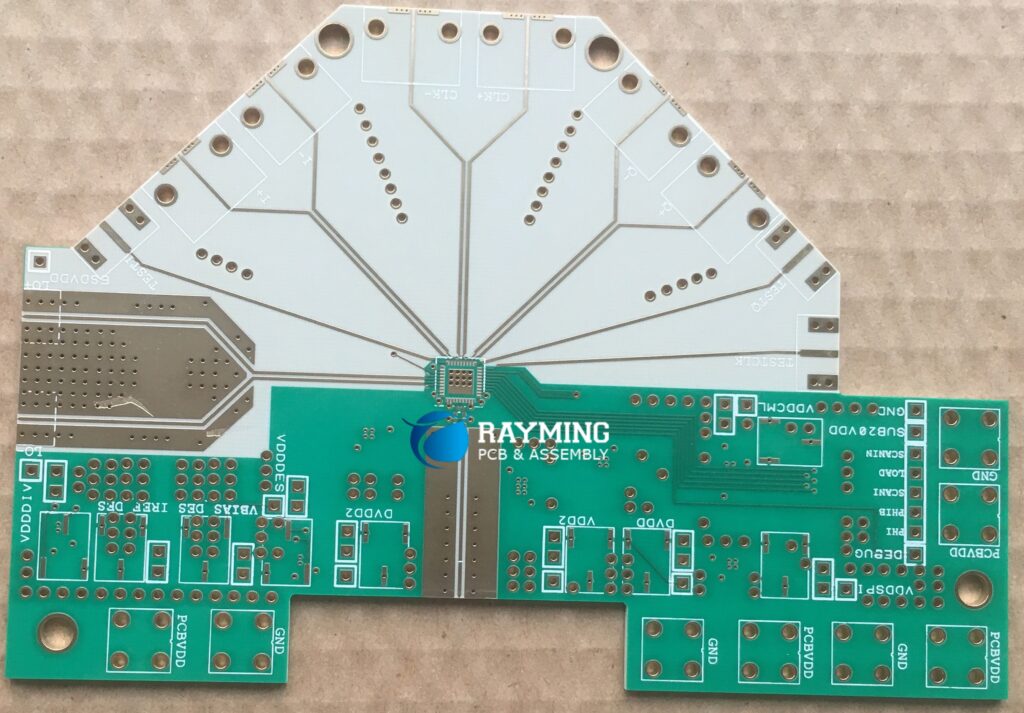
With rapid prototyping’s inherent compressed schedules, controlling expenses can prove tricky. Here are tips to lower costs:
Leverage Standard Offerings
Opt for their templated design rules, materials, processes, and testing which maximize manufacturing efficiency over customized services.
Scale Economically
When migrating from prototyping to pilot build volumes, leverage bulk order discounts available at higher monthly quantities.
Consolidate Orders
Where feasible, consolidate multiple board designs into the same quick turn production batch to maximize panel utilization rates given fixed setup costs.
Reuse Earlier Test Fixtures
For downstream design iterations, repurpose prior test fixtures again instead of paying to develop new ones.
Negotiate for Discounts
If working with an emerging provider lacking brand recognition, negotiate for preferential pricing in exchange for public testimonials on their services.
Consider Production Offshore
Transitioning later stage production offshore could yield cost savings on labor, facilities, regulatory costs, and volume material pricing. Weigh total landed costs.
Maintain Design-Fab Partner Dialog
By sharing preliminary designs early, quick turn fabricators can advise cost optimization tweaks ensuring affordable manufacturability.
While quick turn inherently incurs premium costs for accelerated fabrication, following such guidance helps balance prototyping urgency with budget realities when exploring new product feasibility.
Must-Have Quick Turn PCB Services
Now that we have covered both manufacturer selection best practices and cost control tips, below are must-have services to enable fast yet affordable board prototyping.
Engineering Support
Seek extensive engineering assistance like:
- Design for manufacturing (DFM) analyses pre-fabrication
- Tolerancing reviews to ensure match with assembly
- Regular technical design reviews and ongoing support
Leveraging engineering expertise prevents manufacturability issues.
Testing & Inspection
Rigorous testing regimes verifying quality finished boards encompass:
- Testing developing test plan early in design phase
- Automated optical inspection (AOI) after fabrication
- ICT and functional testing protocols
Verifying quality is vital.
Certifications Compliance
Stringent compliance ensures continuous standards adherence:
- ISO 9001 quality systems certification
- ITAR registration enabling controlled technology builds
- IPC memberships reflecting manufacturing vigilance
Certifications provide quality assurance.
Supply Chain Assistance
Since delays procuring components can slow deliveries, seek help:
- Sourcing constrained raw materials
- Inventory management to enable faster procurement
- Kitting & shipping assistance
Leverage their supply chain scale.
Scalability
A scalable partner supporting continuity offers:
- Ramping capacity from prototypes to high volumes production
- Maintaining quality standards across build quantities
- Retaining engineering support across product maturity lifespan
Plan ahead for scalability.
Affordability
Keep costs reasonable through:
- Providing transparent quotes clearly reflecting cost drivers
- Offering cost-optimization advice tailored to your budget
- Extending volume discounts to reasonably balance priorities
Affordability enables iterative prototyping.
This combination of comprehensive quick turn services balances rapid prototyping with affordability for proving product feasibility confidently.
Frequently Asked Questions
Below are answers to some common quick turn PCB FAQs.
Q: What are typical quick turn lead times?
Lead times range from as little as 24 hours for basic boards to 10 days for complex, high layer count boards. Discuss realistic timeframes with your selected manufacturer.
Q: Does quick turn support advanced PCB technologies?
The best quick turn providers equip their factories with the newest direct imaging (DI) equipment and technologies supporting HDI boards, rigid-flex PCBs, miniaturized components, and tighter tolerances.
Q: How do costs compare to standard PCB production?
Due to compressed schedules, quick turn costs can run 2X-3X traditional fabrication pricing although following earlier guidance helps economize expenses.
Q: Is quality impacted by shorter lead times?
Employing disciplined quality controls, inspection verification, robust testing, and other best practices, reputable quick turn manufacturers deliver exceptional prototype boards balancing urgency and function.
Q: When should I engage a quick turn partner?
Engage a quick turn PCB provider early once preliminary requirements solidify so their engineering support can advise manufacturability guidance immediately as your design iterates.
Finding the right quick turn PCB fabricator for your unique capability, budget and timeline needs accelerates transforming your innovative ideas into physical boards ready for validation.
